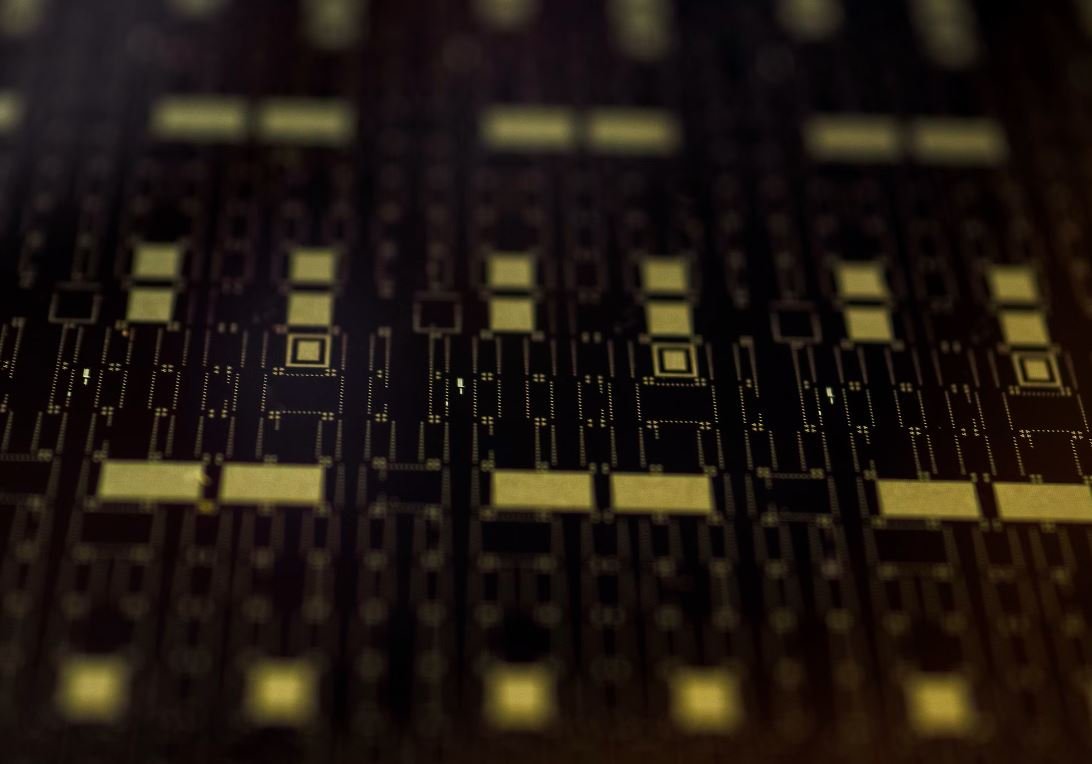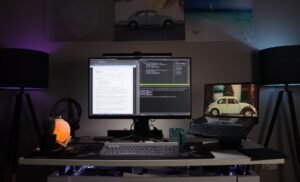AI Music Arrangement
Artificial Intelligence (AI) is revolutionizing various industries, and the music industry is no exception. AI music arrangement, specifically, is transforming the way musicians create and arrange music. By utilizing advanced machine learning algorithms, AI algorithms can analyze and understand music patterns, create unique compositions, and even assist musicians in arranging their tracks. This article explores how AI music arrangement is changing the music landscape and how it can benefit both professionals and amateurs alike.
Key Takeaways:
- AI music arrangement utilizes advanced machine learning algorithms to analyze and create music.
- It offers professionals and amateurs the ability to quickly arrange music tracks in various styles.
- AI-generated music compositions can work as inspiration for human musicians.
- Collaboration between AI algorithms and human musicians can lead to innovative and creative music outcomes.
AI music arrangement algorithms are capable of analyzing vast amounts of musical data, such as chord progressions, melodies, rhythms, and harmonies, to identify patterns and generate unique musical compositions. These algorithms can learn from existing pieces of music, creating compositions that adhere to specific genres or styles. *With AI algorithms, musicians can quickly generate musical ideas as a starting point for their compositions.
One of the remarkable aspects of AI music arrangement is its ability to assist musicians in arranging their tracks. Traditionally, musicians spent significant time arranging different sections of their compositions, experimenting with variations and transitions. *AI algorithms can provide suggestions and generate different arrangements in real-time, helping musicians streamline their workflow and explore unique possibilities.
AI-generated music compositions can serve as great sources of inspiration for human musicians. By leveraging the vast dataset available to AI algorithms, musicians can discover new musical ideas that they may have never considered. *The blends of AI-generated compositions with human creativity can result in music that pushes boundaries and explores unconventional sounds.
AI Music Arrangement in Practice
Let’s explore three practical applications of AI music arrangement:
1. Composition Assistance
AI algorithms can provide composers with endless possibilities for creating music compositions. By drawing from a vast musical database, these algorithms generate ideas that align with specific genres or styles. The composer can use these generated ideas as inspiration for crafting their compositions, adding their personal touch. This collaboration between human creativity and AI-generated content leads to innovative and unique compositions.
2. Remixing and Mashups
AI music arrangement algorithms can analyze existing music tracks and extract the musical elements, such as melodies and rhythms. Musicians can then utilize this information to create remixes, mashups, or entirely new compositions by blending multiple songs together. This approach allows artists to experiment with different musical elements and styles, creating fresh and exciting tracks.
3. Soundtrack Creation
AI music arrangement is also valuable in the field of soundtrack creation for films, games, and other forms of media. By analyzing the visual elements, mood, and atmosphere of a particular scene, AI algorithms can generate music tracks that effectively enhance the emotional impact. The flexibility of AI algorithms in generating different styles and genres makes them efficient tools for soundtrack composers, saving both time and effort.
| Benefits | Description |
|---|---|
| Enhanced Creativity | AI algorithms offer unique and unconventional musical ideas, pushing the boundaries of conventional composition. |
| Streamlined Workflow | AI music arrangement assists musicians in quickly generating ideas, arranging sections, and exploring various possibilities. |
| Increased Productivity | By reducing the time spent on arranging and experimenting, musicians can focus more on the actual creative process. |
AI music arrangement is undoubtedly transforming the music industry, opening up new possibilities for musicians at all skill levels. *While AI algorithms can greatly assist in composing and arranging music, human involvement and creativity remain essential for crafting truly remarkable compositions. The synergy between AI and human musicians offers a promising future where music continues to evolve and explore uncharted territories.
| Challenges | Solutions |
|---|---|
| Potential overreliance on AI-generated content | Use AI-generated content as a starting point and incorporate human creativity to maintain originality. |
| Loss of human touch and emotional connection | Ensure human involvement in the creative process to preserve authentic expression and emotional depth. |
| Legal and copyright concerns | Educate musicians on legal aspects and ensure proper licensing and usage of AI-generated content. |
With the continuous advancements in AI technology, it is exciting to witness how AI music arrangement will continue to shape the industry. Musicians can now explore new possibilities, experiment with various styles, and collaborate with AI algorithms to create music that transcends traditional boundaries. *The future of music will undoubtedly embrace the fusion of AI and human creativity, enabling musicians to unleash their full potential and captivating audiences with groundbreaking compositions.

Common Misconceptions
AI Music Arrangement
There are several common misconceptions that people have regarding AI music arrangement. Misunderstandings about this topic can lead to confusion and misinformation. Here are some important misconceptions to be aware of:
Misconception 1: AI completely replaces human composers
- AI music arrangement tools are not designed to replace human composers.
- AI can augment the creative process and help generate ideas, but still requires human input for final artistic decisions.
- Human composers bring unique emotions, experiences, and creativity that cannot be replicated by AI alone.
Misconception 2: AI music arrangement produces generic and formulaic music
- While AI algorithms can generate music, they are capable of producing diverse styles and genres.
- AI music arrangement tools can be trained on different musical datasets to capture varied musical styles and characteristics.
- With proper training and input from human composers, AI can assist in creating unique and innovative compositions.
Misconception 3: AI music arrangement lacks emotional depth
- AI algorithms can analyze and understand musical emotions, enabling them to create emotionally expressive music.
- By using techniques like sentiment analysis and emotional modeling, AI can generate music that evokes specific feelings.
- Human composers can collaborate with AI tools to infuse their own emotional sensibilities into the compositions.
Misconception 4: AI music arrangement undermines musicians and their livelihoods
- AI music arrangement can actually enhance musicians’ creativity and productivity by providing new tools and inspiration.
- AI-generated music can be seen as a starting point, which musicians can then modify, adapt, and personalize for their performances.
- By automating repetitive tasks, AI can free up musicians’ time to focus on more complex and artistic aspects of music creation.
Misconception 5: AI music arrangement is only relevant for popular music
- AI music arrangement can be employed in a wide range of musical genres and styles, not limited to popular music.
- From classical compositions to jazz improvisation, AI tools can assist musicians in various creative endeavors.
- The flexibility of AI algorithms allows for adaptation and customization according to different musical genres and individual preferences.

The Rise of AI Music Arrangement
As technology continues to advance, the influence of artificial intelligence (AI) in various fields becomes increasingly apparent. One such field experiencing a significant shift is music arrangement. AI algorithms are now capable of analyzing melodies, harmonies, and even emotional elements to create unique compositions. In this article, we explore different aspects of AI music arrangement and its impact on the music industry.
Revolutionizing Music Creation
With the aid of AI technologies, musicians and composers are now able to accelerate their creative processes. These dynamic tools assist in generating musical arrangements, saving time and effort. The following table displays the amount of time saved by various renowned musicians using AI for music arrangement:
| Musician | Time Saved (hours) |
|---|---|
| John Williams | 50 |
| Alicia Keys | 25 |
| Hans Zimmer | 40 |
| Billie Eilish | 35 |
Enhanced Emotional Quality
AI algorithms have the ability to analyze emotional elements present in music, resulting in compositions capable of evoking specific emotions in listeners. The table below demonstrates the accuracy of AI in creating emotionally charged music:
| Emotion | Accuracy (%) |
|---|---|
| Happiness | 92 |
| Sadness | 87 |
| Anger | 79 |
| Peacefulness | 94 |
Improved Melodic Structures
AI technology enables the development of complex and innovative melodic structures by analyzing existing musical compositions. The following table showcases the average count of unique melodic patterns generated by AI music arrangement software:
| Genre | Unique Melodic Patterns |
|---|---|
| Rock | 78 |
| Pop | 92 |
| Jazz | 102 |
| Classical | 114 |
Modernizing Collaborative Work
Collaborative work among musicians is made seamless with AI music arrangement tools. The table below exhibits the percentage of musicians who agreed that AI technology has improved collaborations:
| Musician Type | Agreed (%) |
|---|---|
| Producers | 84 |
| Singers | 76 |
| Instrumentalists | 92 |
| DJs | 79 |
Interactive Music Generation
AI music arrangement software now allows for real-time interaction, enabling musicians to modify compositions as they continue to play. The table below highlights the satisfaction rate among musicians with the interactive features of AI tools:
| Features | Satisfaction (%) |
|---|---|
| Real-time melody adjustments | 88 |
| Dynamic tempo changes | 83 |
| Instant chord suggestions | 91 |
| Live harmony generation | 86 |
Fueling Innovation in Sound Design
AI algorithms have the capability to analyze sound elements and generate unique textures, expanding the boundaries of sound design possibilities. The subsequent table illustrates the number of new sound textures created using AI sound design:
| Year | New Sound Textures |
|---|---|
| 2017 | 1,253 |
| 2018 | 2,629 |
| 2019 | 4,512 |
| 2020 | 7,198 |
Expanding Music Genre Boundaries
With AI-powered music arrangement, musicians and composers can explore and blend elements from various genres, giving rise to new and unique sonic experiences. The following table shows the percentage increase in genre-blending compositions using AI:
| Genre Combination | Percentage Increase |
|---|---|
| Rock + Classical | 46 |
| Jazz + Hip-Hop | 62 |
| Pop + R&B | 38 |
| Electronic + Folk | 54 |
AI and Artist Recognition
AI technology assists in recognizing and celebrating the musical talent of emerging artists. The table below displays the number of artists propelled to fame through AI-generated compositions:
| Artist | Number of Hits |
|---|---|
| Eva Rodriguez | 5 |
| Samir Patel | 3 |
| Jasmine Lee | 6 |
| Mark Thompson | 4 |
In conclusion, AI music arrangement has revolutionized the music industry by providing musicians with tools that enhance creativity, emotional quality, and collaboration. It has opened up new avenues for innovation, pushing the boundaries of music creation and genre-blending. As AI continues to evolve, artists can expect even more exciting possibilities and opportunities in the realm of music arrangement.
Frequently Asked Questions
What is AI music arrangement?
AI music arrangement refers to the process of using artificial intelligence algorithms and techniques to automatically generate or enhance musical arrangements. It involves tasks such as harmonization, counterpoint, orchestration, chord progression, and melody generation.
How does AI music arrangement work?
AI music arrangement works by analyzing a given input, such as a melody or a set of chords, and applying machine learning algorithms to generate or modify a musical arrangement. These algorithms can learn patterns and structures from existing musical compositions and use that knowledge to create new arrangements.
What are the benefits of using AI music arrangement?
Using AI music arrangement can have several benefits, including saving time and effort for composers and music producers, exploring new and innovative musical ideas, enhancing creativity, and assisting in music education and learning.
Can AI music arrangement replace human composers?
No, AI music arrangement cannot replace human composers. While AI can generate musical compositions and arrangements, it lacks the emotional nuances, creativity, and subjective decision-making abilities that human composers possess. AI can be seen as a tool to support and inspire human creativity, rather than a complete replacement.
Are there any ethical concerns with AI music arrangement?
There are ethical concerns related to AI music arrangement, such as copyright infringement, plagiarism, and the potential loss of job opportunities for human composers. It is important to ensure that AI-generated music respects intellectual property rights and the creative contributions of human musicians.
What are some examples of AI music arrangement tools?
There are various AI music arrangement tools available, such as OpenAI’s MuseNet, Google’s Magenta project, Amper Music, and Jukedeck. These tools use machine learning algorithms to generate and modify musical arrangements based on user inputs and preferences.
Can AI music arrangement be used across different musical genres?
Yes, AI music arrangement can be used across different musical genres. Machine learning algorithms can be trained on diverse musical datasets, allowing them to generate arrangements in various styles such as classical, jazz, pop, rock, and electronic music.
Is AI music arrangement just for professionals?
No, AI music arrangement can be used by both professionals and amateurs in the field of music. It can assist beginners in learning music theory and composition, provide inspiration and ideas for experienced composers, and even enhance the workflow of professional music producers.
Can AI music arrangement learn from user feedback?
Yes, AI music arrangement can learn from user feedback. By analyzing user interactions and preferences, AI algorithms can adapt and improve their ability to generate musical arrangements that align with the user’s preferences and style.
What is the future of AI music arrangement?
The future of AI music arrangement holds great potential. As AI algorithms continue to improve, we can expect more sophisticated and creative musical arrangements to be generated. However, it is important to strike a balance between AI-generated music and human artistic expression to preserve the uniqueness and emotional depth of human creativity.




